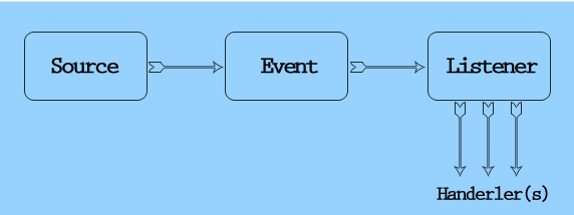In the context of servlets, an Event is something that occurs due to a change in the state of an object. For example, when a user session starts or ends, or when an attribute is added, removed, or replaced in a servlet context or session.
A Listener is an object that responds to an event. It does so by implementing specific interfaces designed to handle various types of events. When an event occurs, the servlet container will call the appropriate method on any registered listeners that can handle that type of event.
Here’s a simple example to illustrate the concept:
import javax.servlet.ServletContextEvent;
import javax.servlet.ServletContextListener;
// Implementing the ServletContextListener interface
public class MyServletContextListener implements ServletContextListener {
// This method is called when the servlet context is initialized (when the web application is deployed).
@Override
public void contextInitialized(ServletContextEvent sce) {
System.out.println("ServletContext initialized");
// Perform action here, such as initializing a resource.
}
// This method is called when the servlet context is destroyed (when the web application is undeployed).
@Override
public void contextDestroyed(ServletContextEvent sce) {
System.out.println("ServletContext destroyed");
// Perform action here, such as cleaning up resources.
}
}
In this example, MyServletContextListener is a listener that listens for events related to the servlet context’s lifecycle. It implements the ServletContextListener interface, which requires the contextInitialized and contextDestroyed methods. These methods are called by the servlet container when the context is initialized or destroyed, respectively.
To use this listener, you would typically register it in your web application’s deployment descriptor (web.xml) like this:
<listener>
<listener-class>com.example.MyServletContextListener</listener-class>
</listener>



